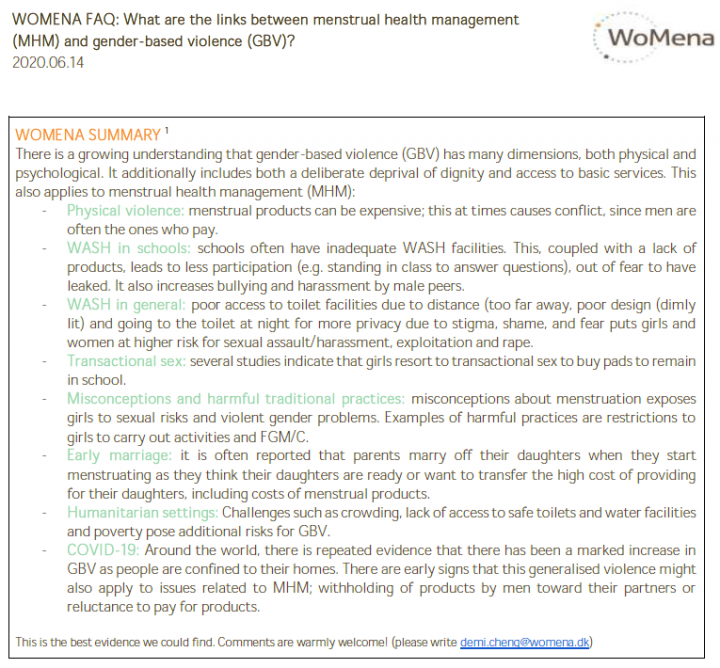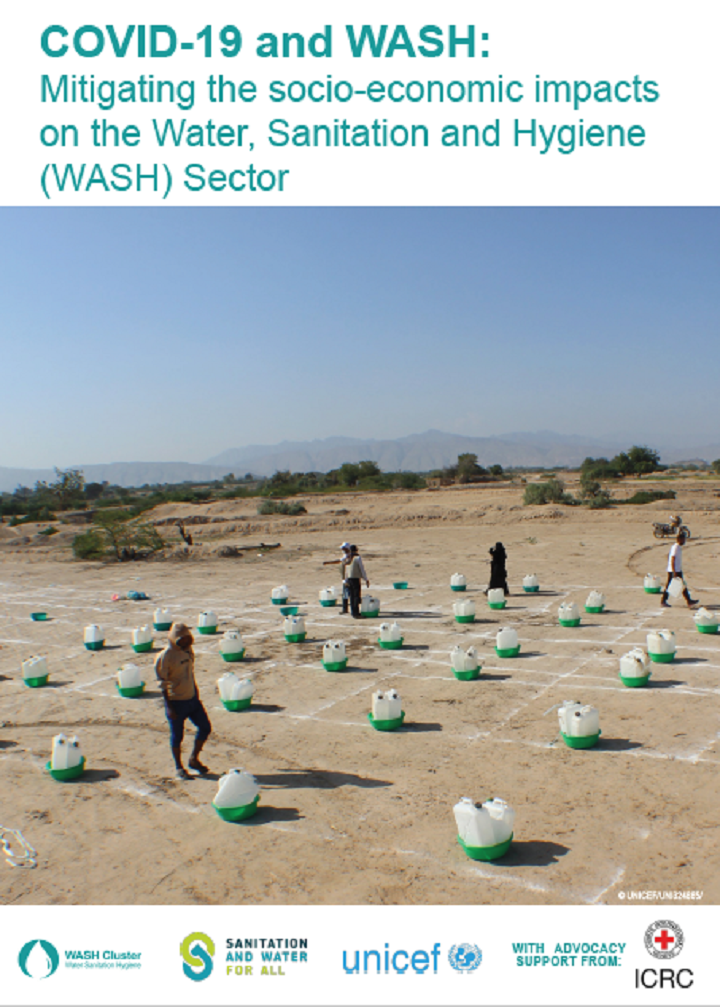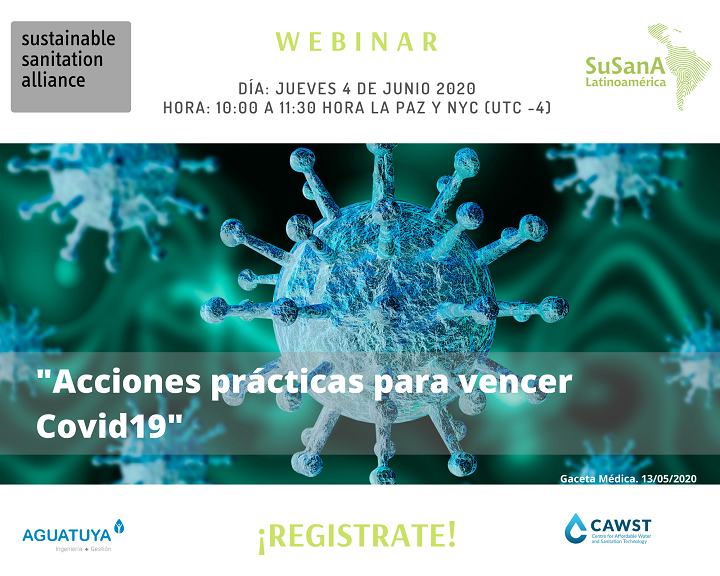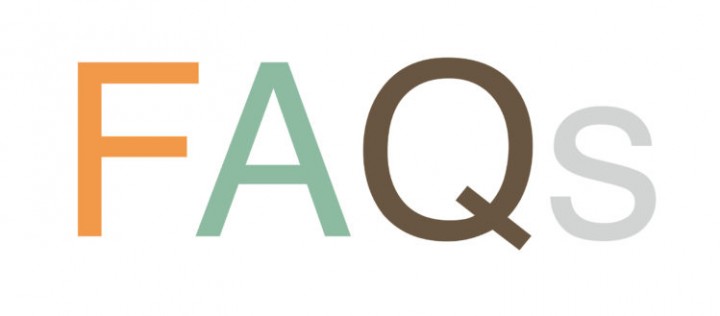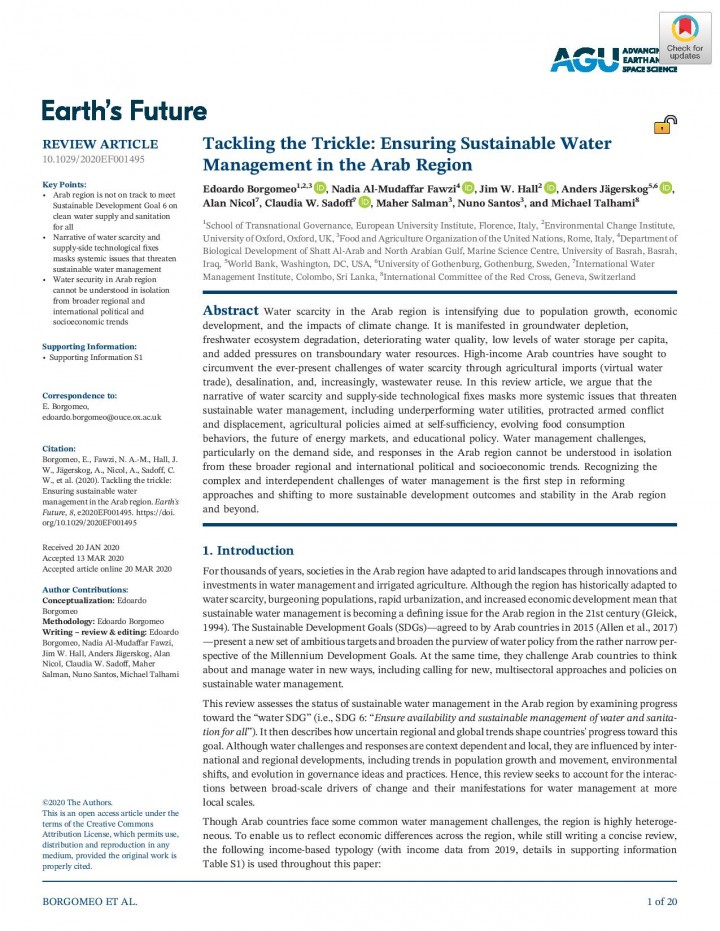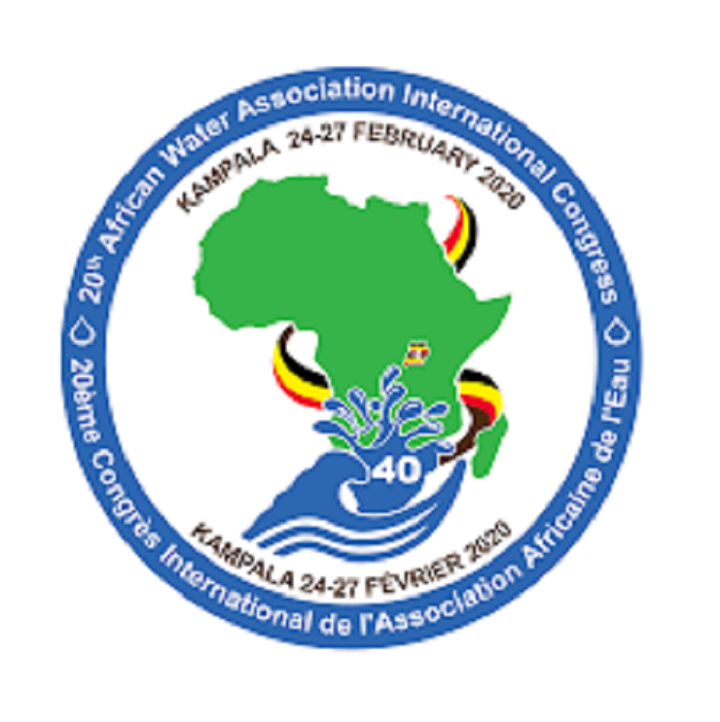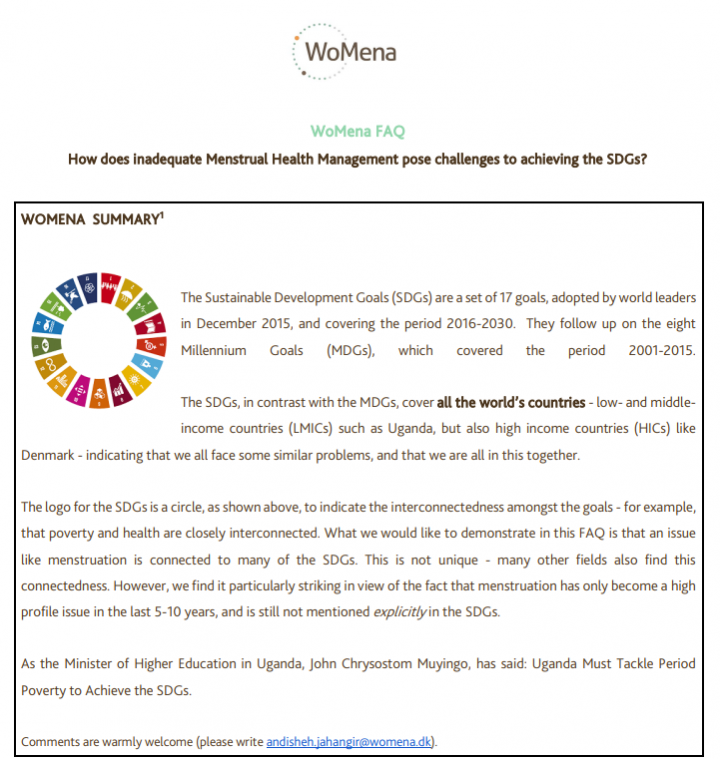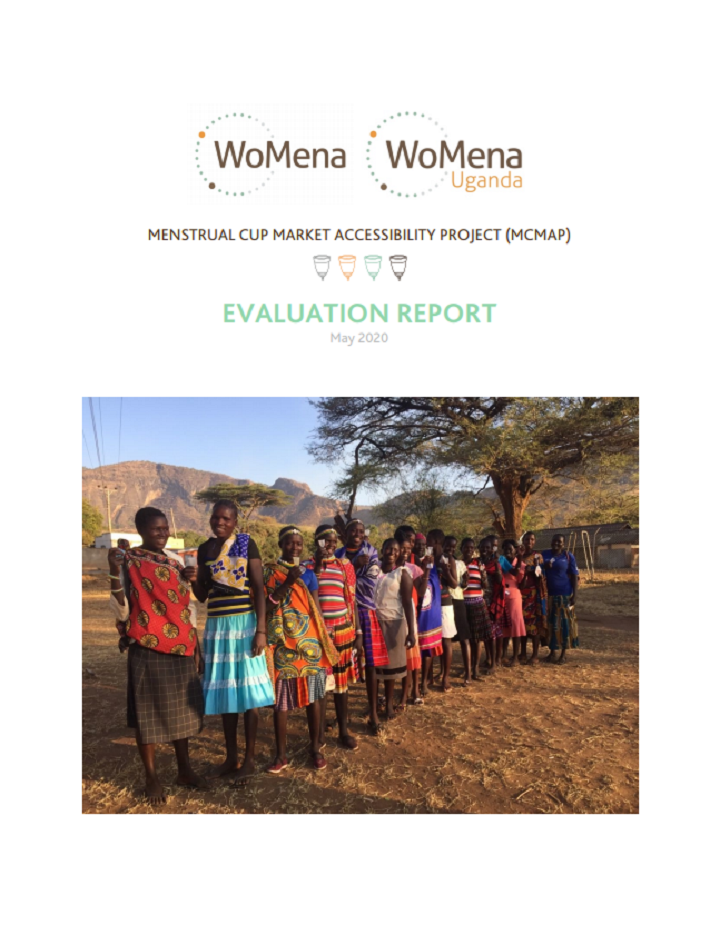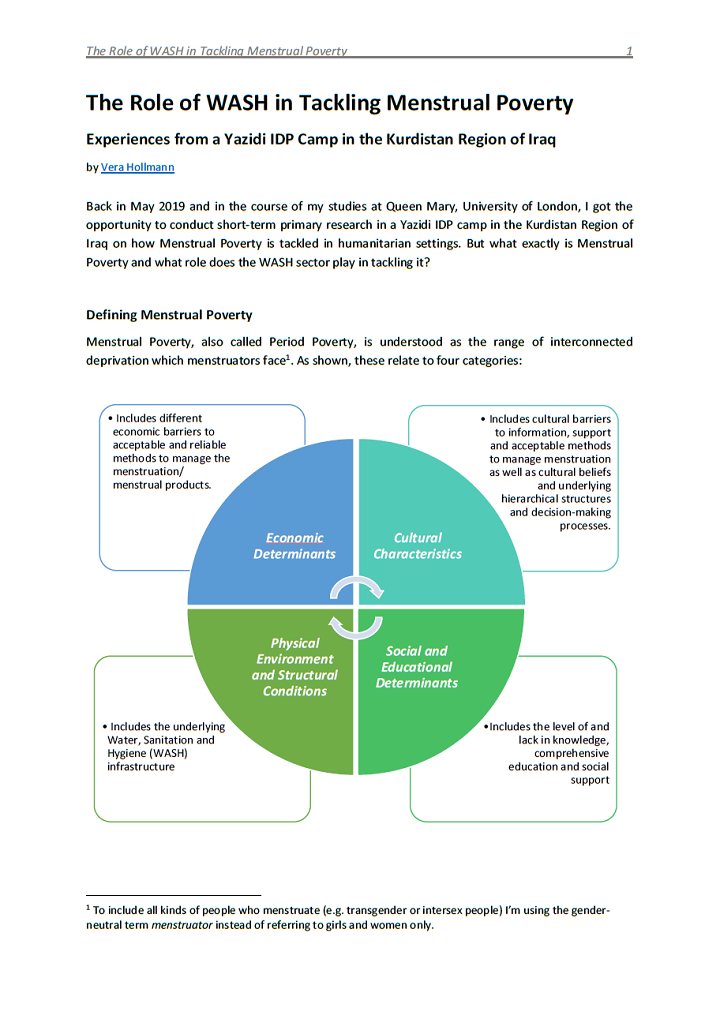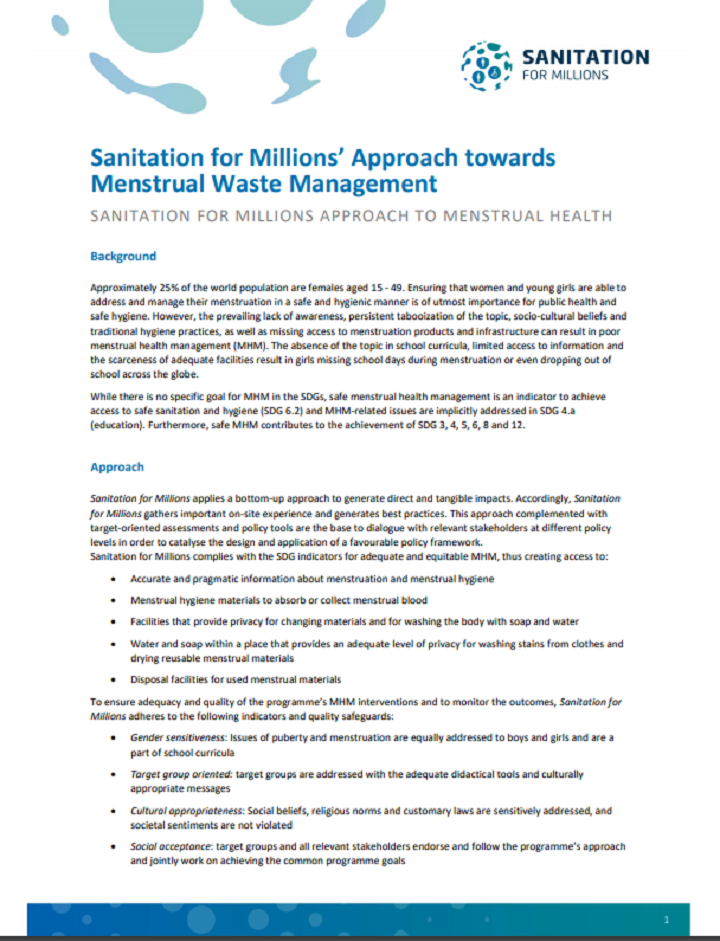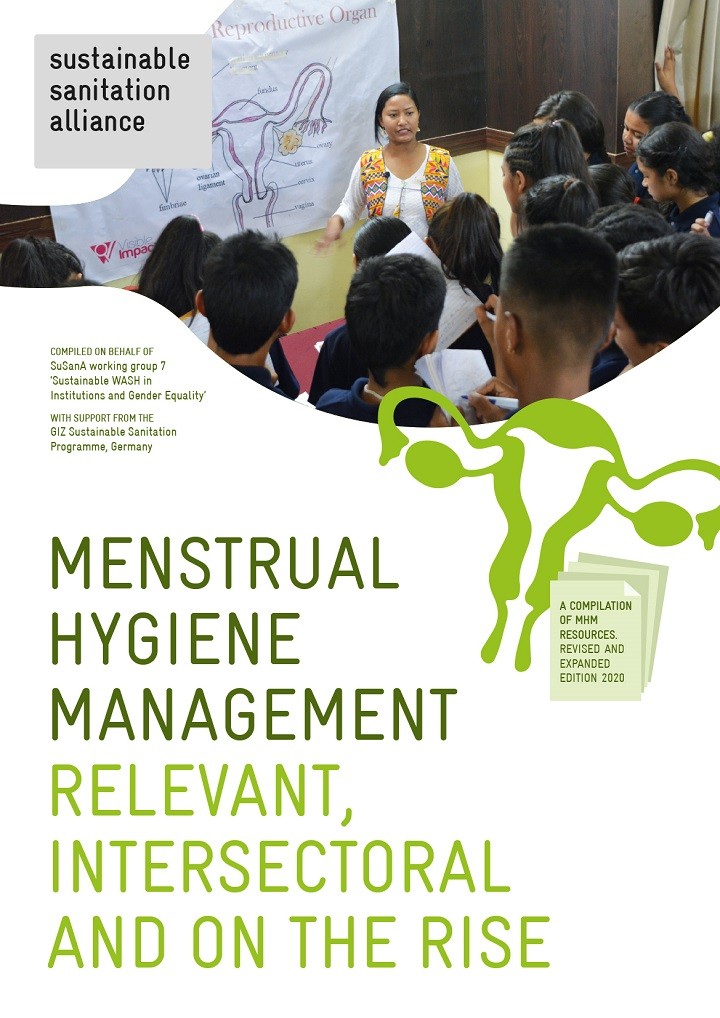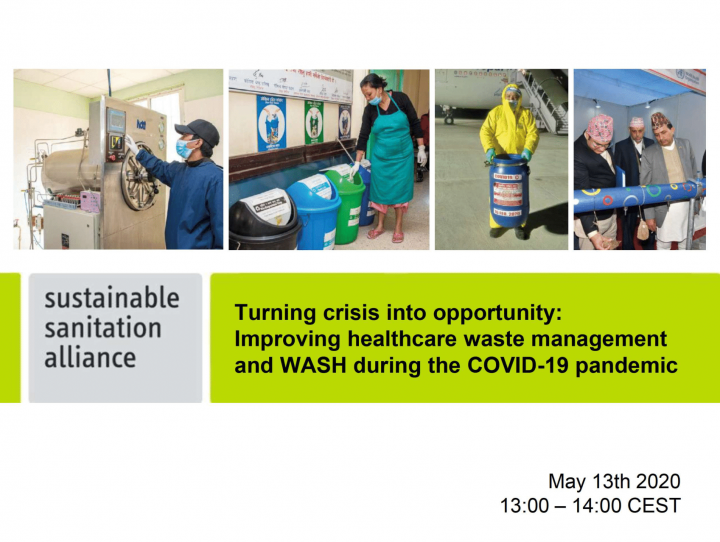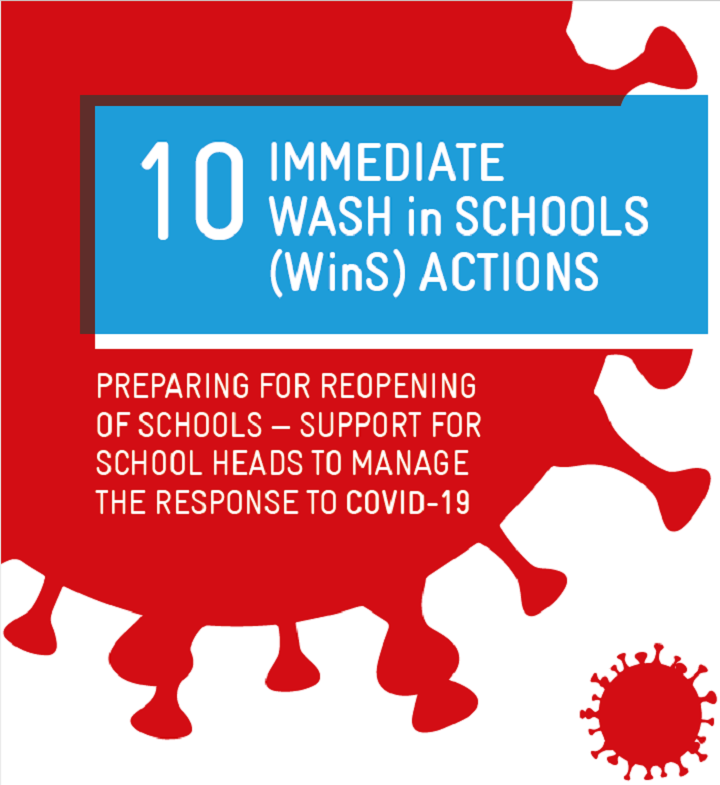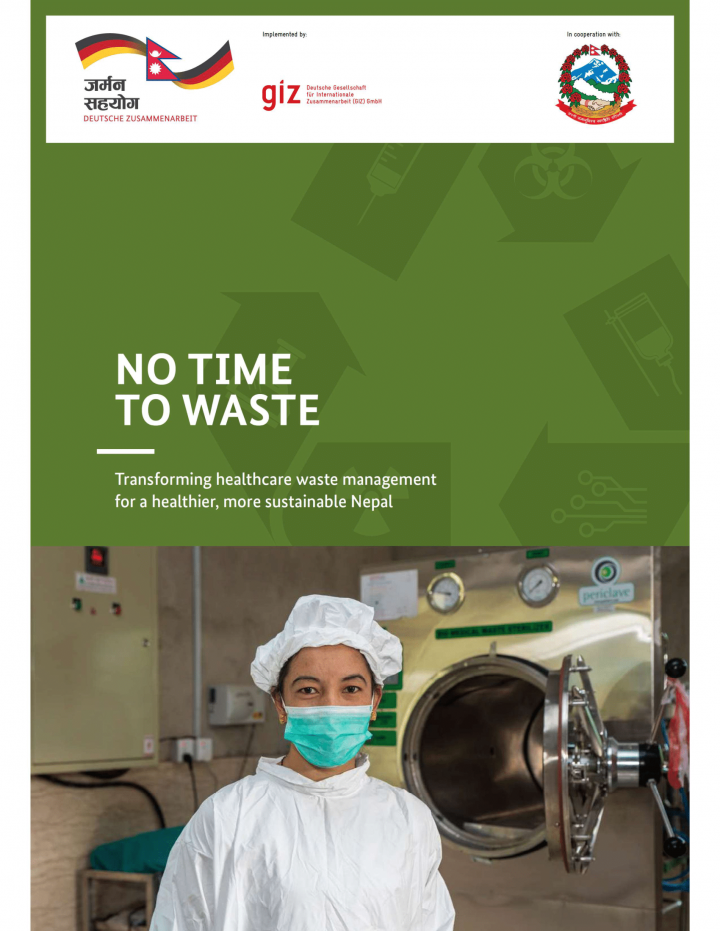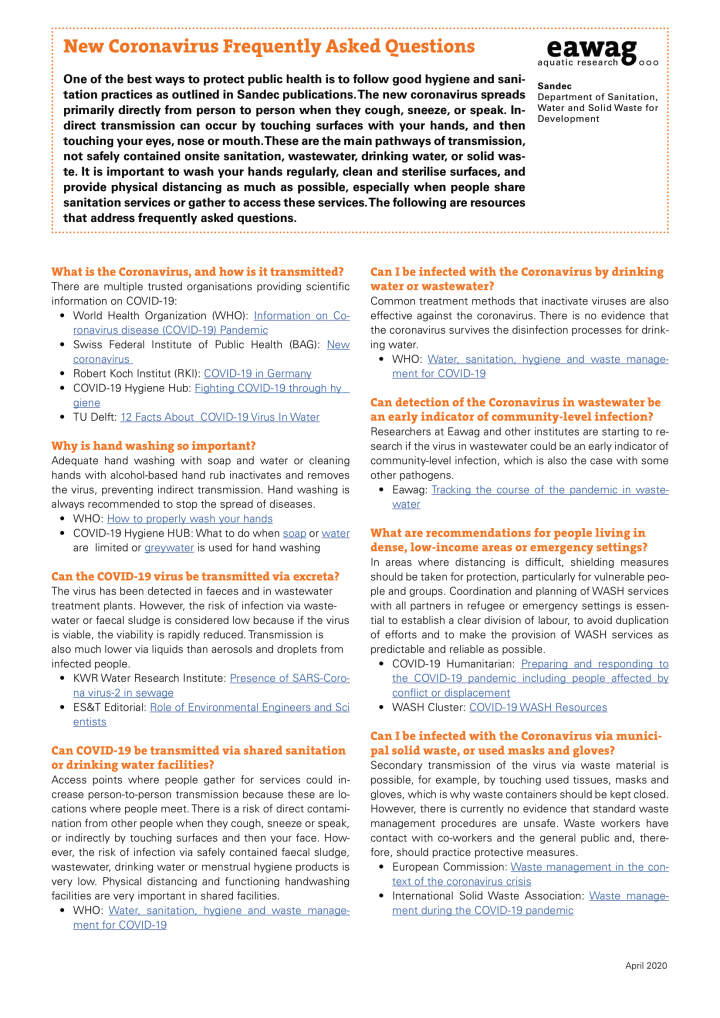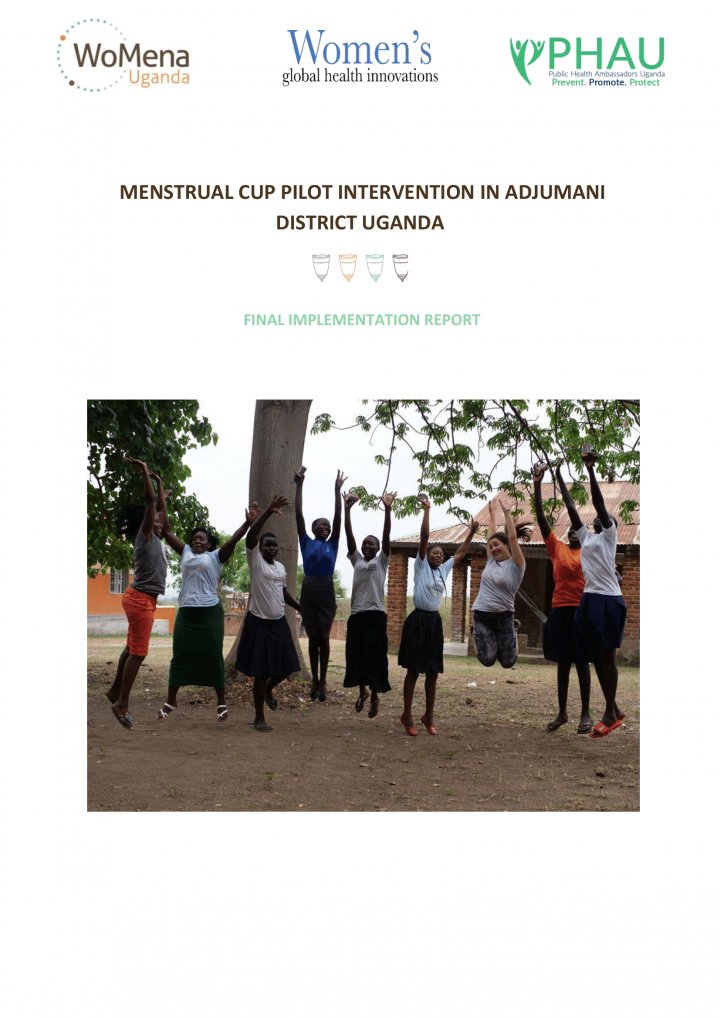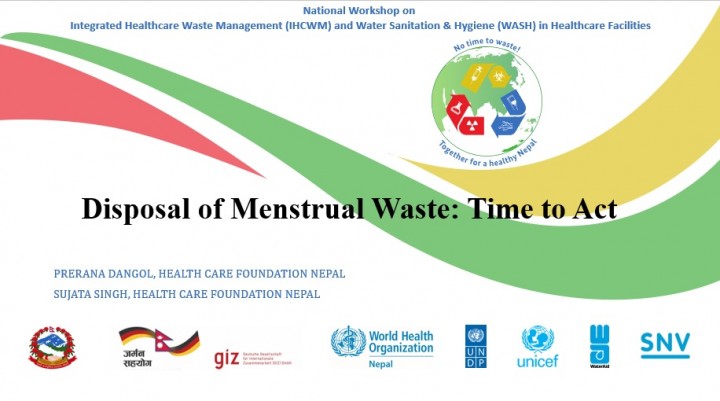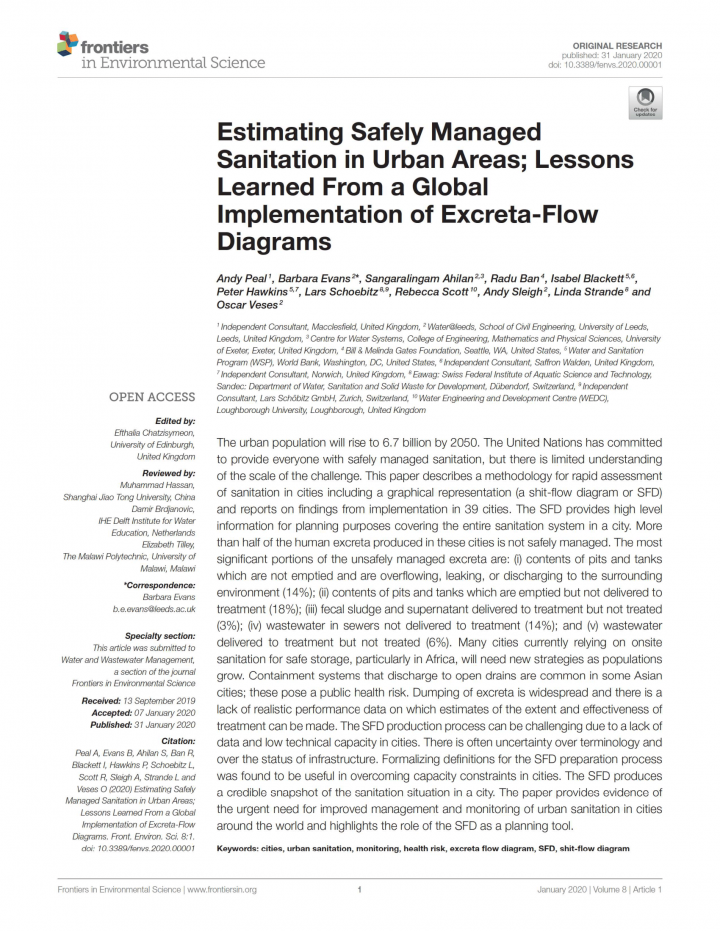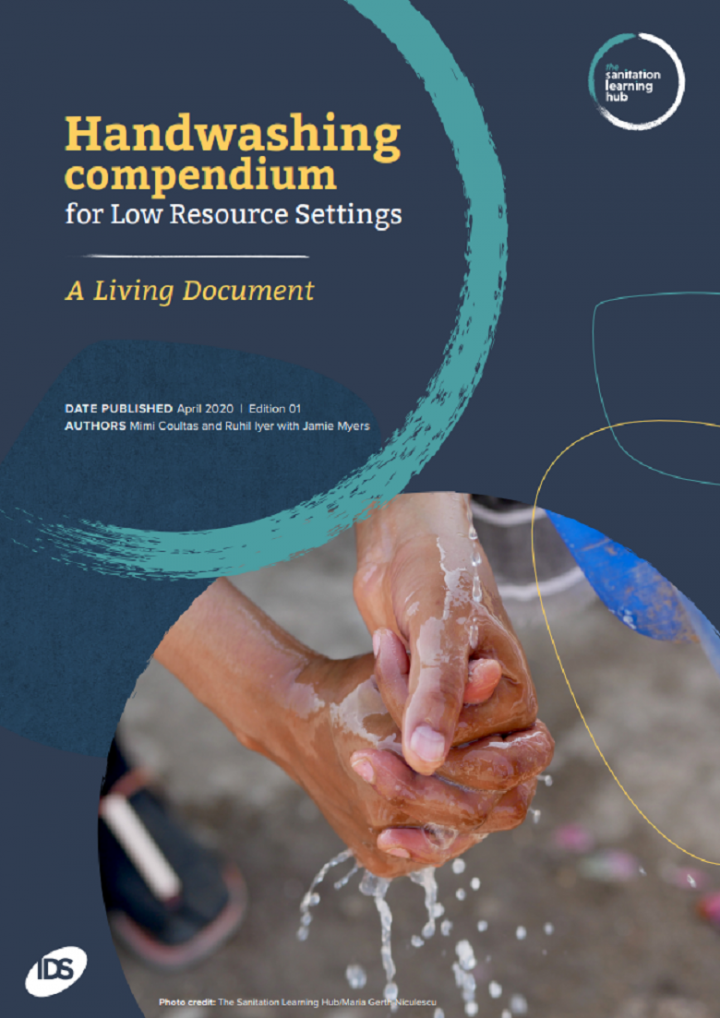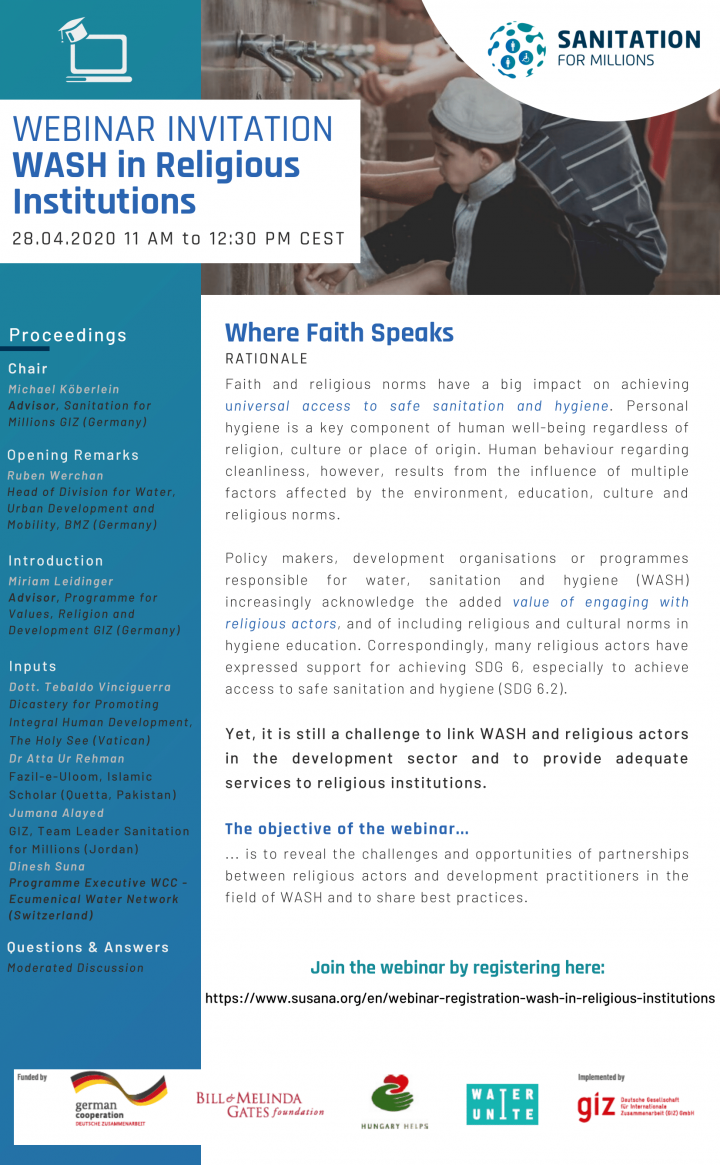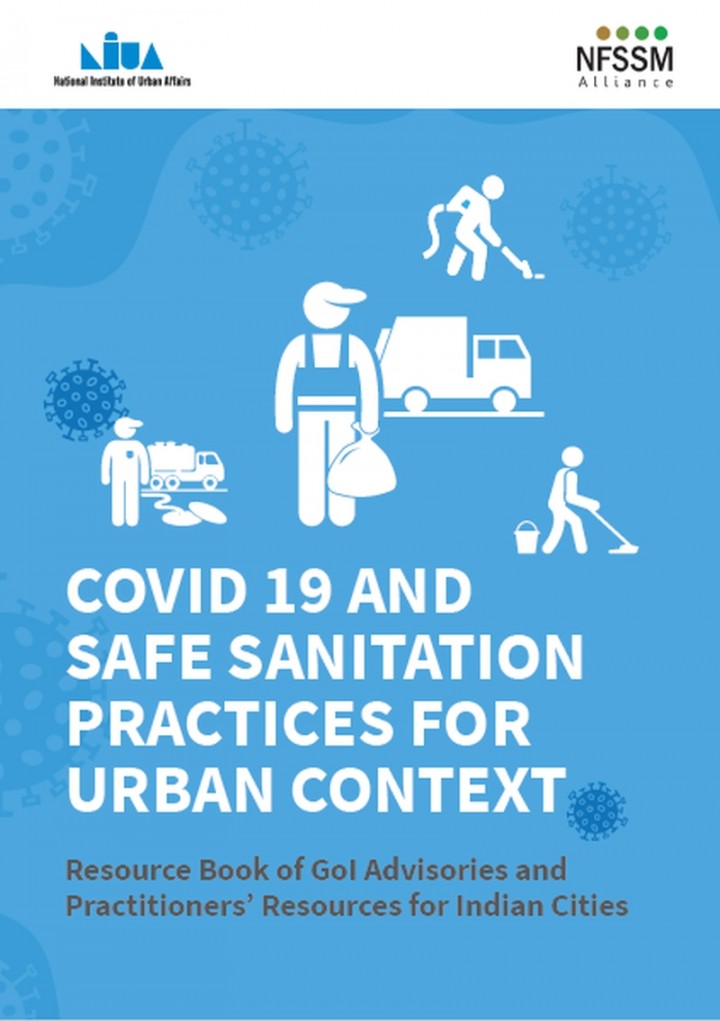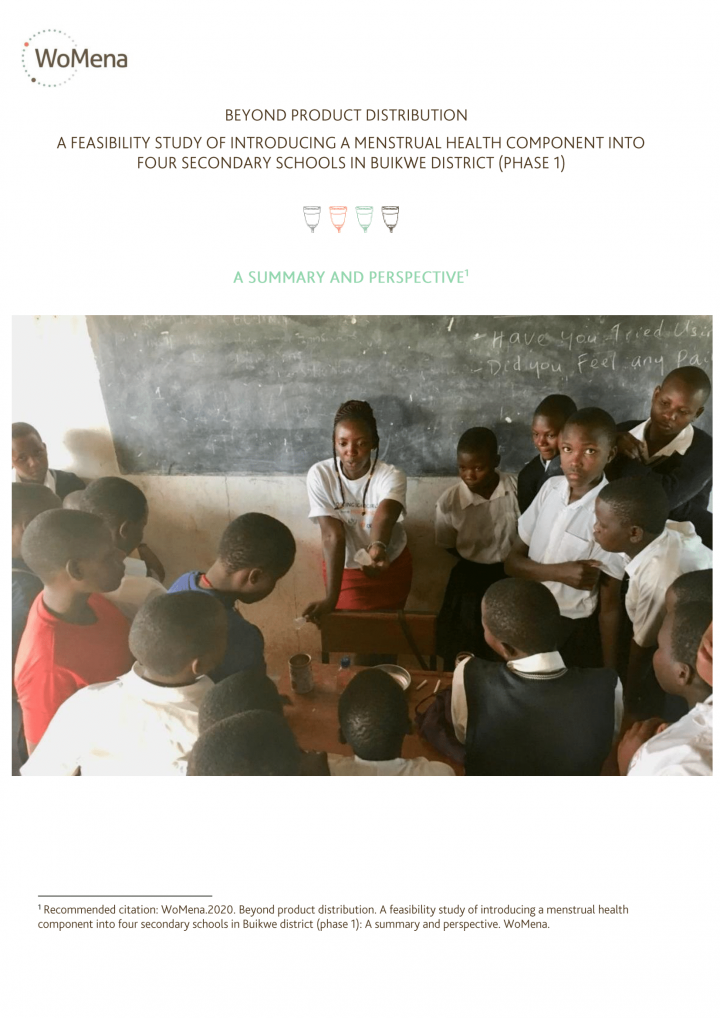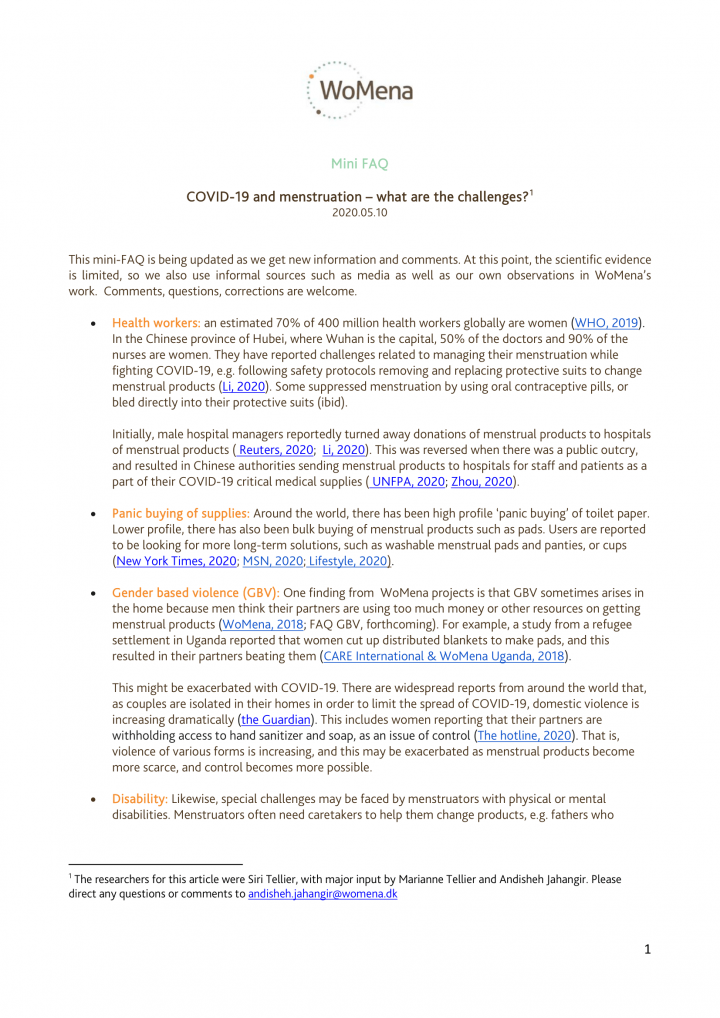Searching for information on Sanitation Workers?
The Sanitation Workers Knowledge + Learning Hub is the best source for all current news, trends, articles and updates on sanitation workers rights around the world.
WoMena SUMMARY [1]
There is a growing understanding that gender-based violence (GBV) has many dimensions, both physical and psychological. It additionally includes both a deliberate deprival of dignity and access to basic services. This also applies to menstrual health management (MHM):
Physical violence: menstrual products can be expensive; this at times causes conflict since men are often …
Clean drinking water, improved sanitation and good hygiene practices are life-sustaining and play an important role in maintaining public health. The benefits of water, sanitation and hygiene (WASH) cannot be underestimated in controlling the spread of disease, as well as underpinning human rights, well-being and development. Safe water, sanitation and hygiene is a necessity to reduce the spread …
El coronavirus COVID-19 está causando estragos en la economía y los sistemas de salud a nivel global, sin embargo existen esfuerzos de diferentes organizaciones que dan frutos en el intento de contener esta emergencia internacional que ya fue declarada como pandemia.
¿Como podemos influir en el comportamiento de las personas? ¿Qué buenas prácticas se pueden aplicar para proteger al …
Water scarcity in the Arab region is intensifying due to population growth, economic development, and the impacts of climate change. It is manifested in groundwater depletion, freshwater ecosystem degradation, deteriorating water quality, low levels of water storage per capita, and added pressures on transboundary water resources. High‐income Arab countries have sought to circumvent the …
Please browse the AfWA ICE 2020 presentations repository. The repository is made up of the six tracks that the Congress comprised of. Under each track, there are the different days of the Congress i.e 24th, 25th , 26th Feb 2020. Under the folder of the date, you will find the presentations. Thank you for attending the historic and largest Water Congress in Africa.
Track 1: Water …
Menstruation is connected to many of the Sustainable Development Goals (SDGs). This is not unique – many other fields also find this connectedness. However, we find it particularly striking in view of the fact that menstruation has only become a high profile issue in the last 5-10 years, and is still not mentioned explicitly in the SDGs.
WoMena Uganda in collaboration with several partners (Marie Stopes Uganda, Welthungerhilfe, private pharmacies, Ruby Life, and HUE Experiential) conducted the Menstrual Cup Market Accessibility Project in Uganda to integrate menstrual cup (MC) distribution and 6 payment models into service delivery and evaluate the models in terms of effectiveness and feasibility. Results indicate that the most …
Menstrual poverty, also called period poverty, is understood as the range of interconnected deprivation menstruators face. But which factors play a role and what can the WASH sector do to tackle menstrual poverty? Examples from a Yazidi IDP camp in the Kurdistan Region of Iraq illustrate why the time for action is now.
Approximately 25% of the world population are females aged 15 - 49. Ensuring that women and young girls are able to address and manage their menstruation in a safe and hygienic manner is of utmost importance for public health and safe hygiene. However, the prevailing lack of awareness, persistent tabooization of the topic, socio-cultural beliefs and traditional hygiene practices, as well as …
Biomass Controls Publications
Last updated 29 April 2020
2020
Elledge, Myles, Anju Toolaram, Parker, Alison. A Gender Lens into Sanitation
Technology Innovation (2020). Journal of Management in Engineering, 2020, 36(4): 06020002
Claire M. Welling, Sarani Sasidaran, Prateek Kachoria, Sarah Hennessy, Brendon J. Lynch, Stephanie Teleski, Hitendra Chaudhari, Katelyn L. Sellgren, Brian R. …
This compilation of MHM resources attempts to provide an overview of and categorise the key resources on MHM to date. By bringing together the growing body of resources, including research, case studies and information material for girls and boys, this publication intends to provide interested individuals and organisations with an overview of the most relevant publications on MHM.
On 13th of May SuSanA and GIZ (Sustainable Sanitation Programme & Support to the Health Sector Programme Nepal) jointly hosted a webinar on "Improving healthcare waste management and WASH during the COVID-19 pandemic".
With the COVID-19 pandemic, we are experiencing a rapid increase in healthcare waste. Countries and health systems are struggling to safely manage and dispose of this waste in …
This publication describes the beginnings of a movement to address the adverse effects of healthcare waste on both people and the environment in Nepal. Healthcare waste refers to all waste generated in healthcare facilities, research centers and laboratories. It includes a broad range of materials, from potentially hazardous items, such as used needles and syringes, soiled dressings, body parts …
One of the best ways to protect public health is to follow good hygiene and sanitation practices as outlined in Sandec publications. The new coronavirus spreads primarily directly from person to person when they cough, sneeze, or speak. Indirect transmission can occur by touching surfaces with your hands, and then touching your eyes, nose or mouth. These are the main pathways of transmission, not …
In Uganda approximately 86% of South Sudanese refugee arrivals are women and children (UNHCR, 2017a). Globally, girls and women often lack the ability to manage their menstruation with dignity due to lack of adequate and private facilities, safe, acceptable and accessible menstrual health products and knowledge, which can be further exacerbated during conflict and displacement. Menstrual health …
This paper describes a methodology for rapid assessment of sanitation in cities including a graphical representation (a shit-flow diagram or SFD) and reports on findings from implementation in 39 cities. The SFD provides high level information for planning purposes covering the entire sanitation system in a city. More than half of the human excreta produced in these cities is not safely managed. …
Abstract
Innovators in the water and sanitation sector are focused on closing the sanitation gap in developing countries through innovation in technologies that enable waste treatment onsite. To ensure universal access, these technologies need to meet the practices and preferences of different genders. This paper uses an online survey and follow-up telephone interviews with technology developers …
Frequent and proper handwashing with soap is vital to prevent the spread of COVID-19. In response, we have developed this Handwashing Compendium for Low Resource Settings.
Bringing existing information from different organisations into one place, the compendium provides guidance, local examples of and further resources on accessible low-cost handwashing facilities, environmental cues and …
In this webinar development practitioners and religious actors shared their experiences in collaborating to jointly achieve the fulfillment of SDG 6.2. . The speakers showcased best practices and innovative approaches and elaborate their view on the importance of religious actors on achieving universal access to water, sanitation and hygiene.
Unfortunately there were technical difficulties …
This Resource Book is a compilation of important Govt of India Advisories and other Knowledge Resources relating to Urban Sanitation and COVID. National Institute of Urban Affairs (NIUA) along with the National Faecal Sludge and Septage Management (NFSSM) Alliance Partners, has taken up this initiative of creating a repository of important government advisories and practitioners’ guidance …
EXECUTIVE SUMMARY
In Sub-Saharan Africa (SSA), menstrual health is often considered a taboo and many girls and women lack access to safe and appropriate menstrual health management (MHM) products. This can have far-reaching implications for women and girls’ physical, social and mental wellbeing, as well as for their sexual reproductive health and rights. These MHM issues are often further …
This mini-FAQ is being updated as we get new information and comments. At this point, the scientific evidence is limited, so we also use informal sources such as media as well as our own observations in WoMena’s work. Comments, questions, corrections are welcome.
WoMena’s contribution: WoMena works in a wide range of contexts in Uganda, including refugee settlements. In the COVID-19 …

